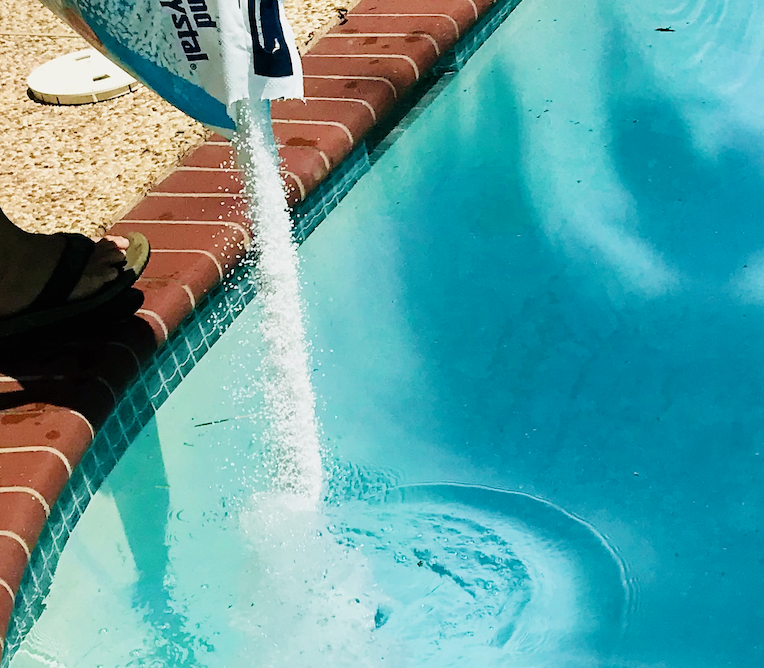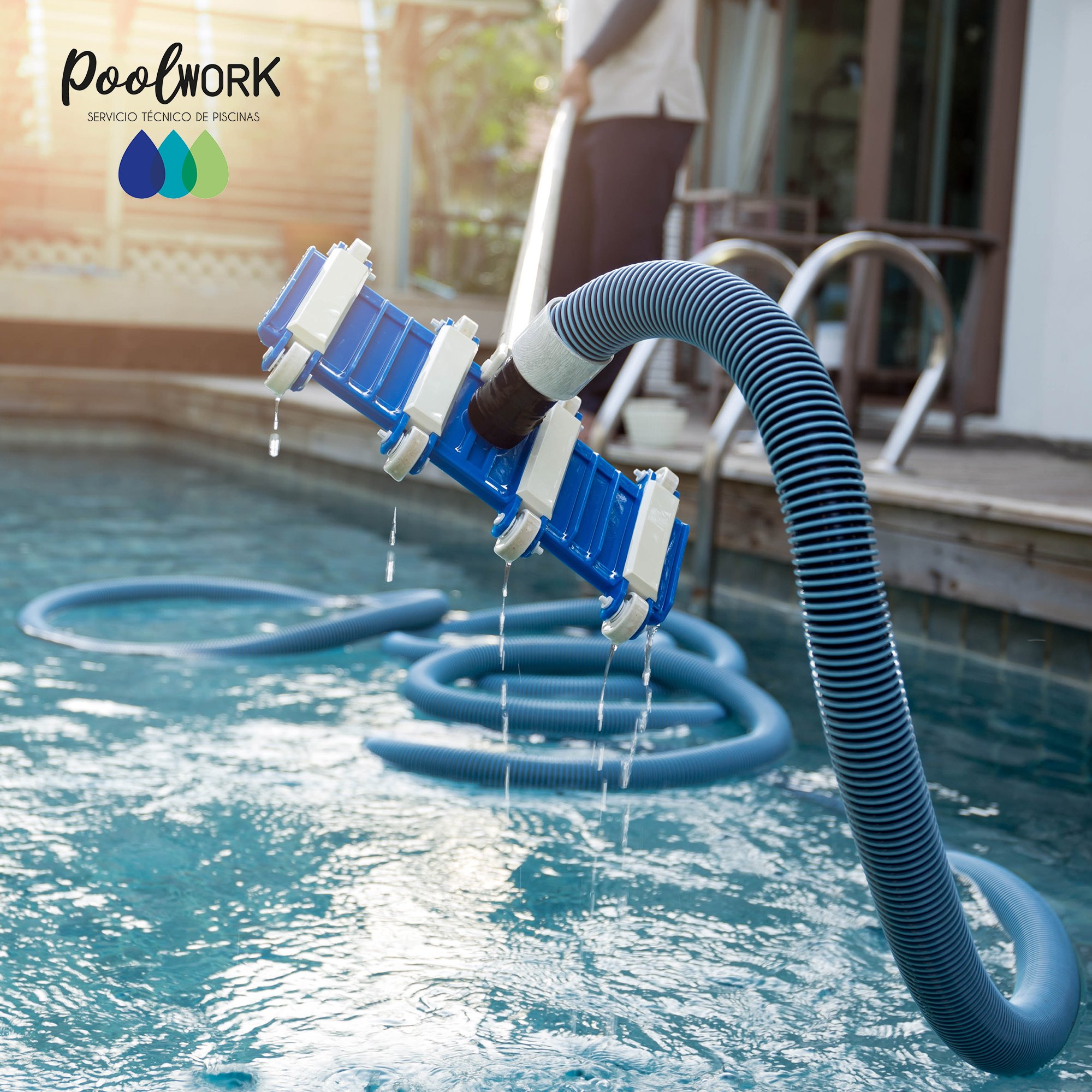Let’s face it, maintaining a pool can seem like a daunting task, but it doesn’t have to be. If you’ve ever wondered how to keep your pool sparkling clean and ready for those summer dips, you’ve come to the right place. We’re diving deep into the world of pool maintenance, breaking it down step by step so even beginners can master the art of keeping their pool in top shape. Whether you’re a first-time pool owner or just looking to refine your skills, this guide has got you covered.
Imagine this: you walk out to your backyard, ready to take a refreshing dip in your crystal-clear pool. But wait—what if the water looks cloudy, or worse, green? Yikes. That’s where proper pool maintenance comes in. Knowing how to maintain a pool isn’t just about aesthetics; it’s about ensuring the water is safe and healthy for everyone who uses it.
Now, don’t worry if you’re not a pool expert yet. By the end of this guide, you’ll have all the tools, tips, and tricks you need to keep your pool in pristine condition. So grab a drink, get comfy, and let’s dive into the world of pool care together!
Before we jump into the nitty-gritty, here’s a quick table of contents to help you navigate through this comprehensive guide:
- Pool Maintenance Overview
- Tools You’ll Need for Pool Maintenance
- Testing Your Pool Water
- Balancing Pool Chemicals
- Cleaning the Pool
- Pool Filter Maintenance
- Preparing Your Pool for Winter
- Common Pool Issues and How to Fix Them
- The Cost of Maintaining a Pool
- Pro Tips for Pool Owners
Pool Maintenance Overview
Alright, let’s kick things off with the basics. Maintaining a pool isn’t rocket science, but it does require a bit of consistency and care. Think of it like taking care of your car or your home—you want to make sure everything runs smoothly and looks great. Your pool is no different.
Here’s the deal: regular maintenance helps prevent costly repairs down the line. By staying on top of things like water chemistry, cleaning, and equipment upkeep, you can avoid headaches and keep your pool in tip-top shape. Plus, who doesn’t want to enjoy a clean, inviting pool whenever the mood strikes?
So, what exactly does maintaining a pool involve? Let’s break it down:
- Testing and balancing the water chemistry
- Cleaning the pool regularly
- Maintaining the filtration system
- Preparing the pool for seasonal changes
Why Pool Maintenance Matters
It’s not just about aesthetics, folks. Proper pool maintenance ensures that the water is safe for swimming, free from harmful bacteria and algae. Neglecting your pool can lead to all sorts of problems, from cloudy water to equipment failure. Trust me, you don’t want to deal with a broken pump or a green pool in the middle of summer.
Tools You’ll Need for Pool Maintenance
Now that we’ve covered the basics, let’s talk about the tools you’ll need to keep your pool in check. Don’t worry; you don’t need to break the bank to get started. Here’s a list of essential tools every pool owner should have:
- Test kit (for checking pH, chlorine, and other chemicals)
- Skimmer net (for removing debris from the surface)
- Vacuum (for cleaning the pool floor)
- Brush (for scrubbing pool walls and tiles)
- Pole (for extending your cleaning tools)
- Chemical dispenser (for adding chemicals evenly)
Having the right tools makes the job a whole lot easier. Plus, it’s always nice to have a well-stocked pool maintenance kit ready to go whenever you need it.
Investing in Quality Tools
While you don’t need to go overboard, investing in quality tools can save you time and money in the long run. Cheap tools might break easily or not work as effectively, leaving you frustrated and stuck with a messy pool. Do yourself a favor and splurge a little on durable, reliable equipment.
Testing Your Pool Water
Testing your pool water is one of the most important aspects of maintenance. It’s like giving your pool a check-up to make sure everything’s balanced and healthy. Here’s how to do it:
Step 1: Use a test kit to check the pH, chlorine, and other chemical levels in your pool. Aim for a pH level between 7.2 and 7.8, and chlorine levels between 1 and 3 ppm.
Step 2: Adjust the chemicals as needed. If the pH is too high or too low, use pH increaser or decreaser to bring it back into balance.
Step 3: Test your water regularly, ideally 2-3 times a week, especially during peak swimming seasons.
Why Testing is Crucial
Think of your pool water as a delicate ecosystem. If the chemicals are off, it can lead to all sorts of problems, like algae growth or skin irritation. Regular testing helps you stay on top of things and make adjustments before issues arise.
Balancing Pool Chemicals
Alright, let’s talk about the nitty-gritty of balancing pool chemicals. This is where the magic happens, folks. Properly balanced water not only looks great but also feels great on your skin.
Here’s a quick rundown of the key chemicals you’ll need to balance:
- pH: Maintains water balance and prevents irritation
- Chlorine: Keeps the water sanitized and free from bacteria
- Alkalinity: Stabilizes pH levels and prevents fluctuations
- Calcium: Prevents corrosion and scaling
By keeping these chemicals in check, you’ll have a pool that’s both safe and enjoyable.
Common Chemical Mistakes to Avoid
Overdoing it with chemicals is a rookie mistake. Adding too much chlorine, for example, can lead to skin irritation and damage to pool equipment. Always follow the instructions on the packaging and test your water before making adjustments.
Cleaning the Pool
Cleaning your pool might sound tedious, but it’s a necessary part of maintenance. The good news? With the right tools and techniques, it can be a breeze. Here’s how to clean your pool like a pro:
Step 1: Use a skimmer net to remove leaves, bugs, and other debris from the surface of the water.
Step 2: Brush the walls and tiles to prevent algae buildup and keep everything looking fresh.
Step 3: Vacuum the pool floor to pick up any dirt or sediment that’s settled at the bottom.
Regular cleaning not only keeps your pool looking great but also helps maintain water quality. Plus, who doesn’t love a sparkling clean pool?
How Often Should You Clean Your Pool?
The frequency of cleaning depends on factors like how often you use the pool and the environment around it. As a general rule, aim to clean your pool at least once a week. If you live in an area with lots of trees or dust, you might need to clean it more frequently.
Pool Filter Maintenance
Your pool filter is the heart of your pool’s system, so keeping it in good working order is crucial. A clean, well-maintained filter ensures that your water stays clear and free from debris.
Here’s how to take care of your pool filter:
Step 1: Backwash your filter regularly to remove trapped debris. This should be done every few weeks, depending on usage.
Step 2: Clean or replace the filter cartridge as needed. For sand filters, you’ll need to replace the sand every 5-7 years.
Step 3: Check for leaks or damage and repair them promptly to avoid bigger issues.
Choosing the Right Filter
There are three main types of pool filters: sand, cartridge, and DE (diatomaceous earth). Each has its pros and cons, so choose the one that best fits your needs and budget. Sand filters are durable and easy to maintain, while cartridge filters offer finer filtration and require less backwashing.
Preparing Your Pool for Winter
Winterizing your pool is an essential step if you live in an area with cold temperatures. Proper winter preparation helps protect your pool and equipment from damage during the colder months.
Here’s a quick guide to winterizing your pool:
Step 1: Clean the pool thoroughly, removing all debris and lowering the water level.
Step 2: Add winterizing chemicals to prevent algae growth and protect the water.
Step 3: Drain water from the pump, filter, and pipes to prevent freezing.
Step 4: Cover the pool with a secure winter cover to keep it protected.
Why Winterizing Matters
Failing to properly winterize your pool can lead to costly repairs in the spring. Frozen pipes, cracked equipment, and algae blooms are just a few of the potential problems you might face. Taking the time to prepare your pool for winter ensures it’s ready to go when warmer weather returns.
Common Pool Issues and How to Fix Them
Even the most diligent pool owners encounter issues from time to time. Here are some common problems and how to fix them:
- Cloudy water: Check your filter and adjust the chemicals as needed.
- Green water: Shock the pool with extra chlorine and clean the filter.
- Leaky equipment: Inspect the seals and gaskets, and replace them if necessary.
Knowing how to troubleshoot common issues can save you time and money, and keep your pool running smoothly.
The Cost of Maintaining a Pool
Maintaining a pool does come with some costs, but they’re manageable if you plan ahead. Here’s a breakdown of the typical expenses:
- Chemicals: $50-$100 per month
- Equipment: $200-$500 per year for repairs and replacements
- Professional services: $100-$200 per month for cleaning and maintenance
While it might seem like a lot, the cost of maintaining a pool is a small price to pay for the enjoyment and value it adds to your home.
Pro Tips for Pool Owners
Here are some pro tips to help you become a pool maintenance guru:
- Test your water regularly and make adjustments as needed.
- Invest in quality tools and equipment to save time and money.
- Stay ahead of potential issues by inspecting your pool and equipment regularly.
- Consider hiring a professional for big jobs or if you’re short on time.
With these tips in your arsenal, you’ll be well on your way to becoming a pool maintenance pro.
Final Thoughts
Maintaining a pool might seem intimidating at first, but with the right knowledge and tools, it’s a task anyone can master. By staying on top of water chemistry, cleaning, and equipment upkeep, you’ll have a pool that’s safe, healthy, and ready for fun whenever you need it.
So, what are you waiting for? Grab your tools, roll up your sleeves, and get to work. And remember, if you ever need a hand, there’s no shame in calling in the professionals. Now go out there and enjoy your sparkling clean pool!
Got questions or comments? Drop them below, and let’s keep the conversation going. Happy pool-ing!


